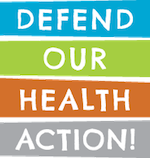PFAS in Freshwater Fish: Maine
PFAS is a toxic chemical that can contaminate the air we breathe, the water we drink, and the soil we use to grow our crops. Stories of PFAS found in farm animals have also increased. One area of contamination you may have seen in the news recently is the toxic chemicals found in fish!
How does PFAS end up in fish? It’s simple: contaminated waste, via industrial discharge (and sometimes other ways), seeps into various water channels, further contaminating the fish that live there. A study by the Environmental Working Group found that consumption of just a single serving of freshwater fish per year could equal a month of drinking water laced with the “forever chemical” PFOS at high levels that may be harmful.
In Maine, most of the state’s 6,000 lakes, ponds, and 32,000 miles of rivers haven’t been tested for potentially harmful “forever chemicals.” So far, only 1,800 fish from 112 water channels have been tested. These tests resulted in the Maine Center for Disease Control and Prevention issuing consumption limits for ten ponds, lakes, streams, and rivers where PFAS levels are so high that no one should consume the fish.
“Growing up, I went fishing every week and ate those fish. But now when I see fish, all I think about is PFAS contamination.”
David Andrews, senior Environmental Working Group scientist via Portland Press Herald
Maine is economically and culturally reliant on fish and marine life. Known worldwide for its lobster, the health and wellness of the aquatic animals we consume directly impact our own.
PFAS-contaminated fish also affects the tribal communities that call Maine home. In the same study conducted by EWG mentioned above, three of the seven rivers tested in Maine are a primary resource for the tribal communities. Contaminated water sources create a food sovereignty issue (due to the contaminated fish in their waters) and a cultural issue (fishing is a cultural tradition for many tribal nations).
“And then some are people… don’t want to eat anything associated with the river. It’s a significant loss to the tribe’s sustenance rights and culture.”
Dan Kusnierz, water resources program manager for the Penobscot Nation via Maine Public
EWG is an organization comprised of scientists, policy experts, lawyers, and communications and data experts who work tirelessly to reform our nation’s broken chemical safety and agricultural laws and empower people with breakthrough research to make informed choices and live healthy lives in healthy environments. Click here to learn more about them.
The Wabanaki Alliance is a non-profit organization that encompasses the four tribes of Maine (Mi’kmaq Nation, Houlton Band of Maliseet Indians, Passamaquoddy Tribe, and Penobscot Nation) with the goal of educating the people of Maine about the need for securing the sovereignty of the tribes in Maine in all areas of life. Click here to learn more about the organization and how to get involved.
